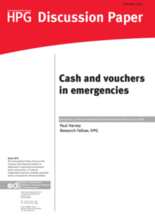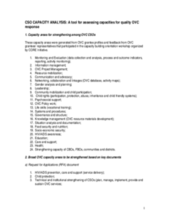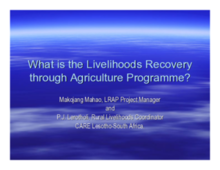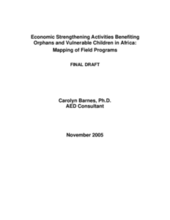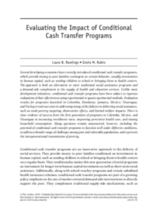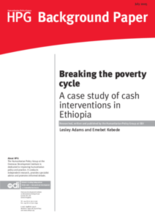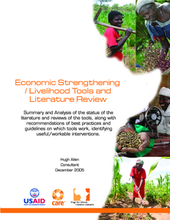Displaying 241 - 250 of 271
Examines the use of cash and vouchers to provide people with assistance in emergency situations
This document provides a tool that was used to assess broad capacity areas for quality OVC response in Uganda.
A description of a multi-level intervention in rural Lestho aimed to improve the livelihood security of vulnerable households by improving home gardening, increasing awareness of HIV/AIDS, and influencing policy. By focusing on rural livelihoods and economic empowerment the program had some success in raising awareness and strengthening resilience to the HIV/AIDS epidemic.
This paper identifies programs in sub-Saharan Africa focused on economic strengthening interventions, and analyzes their approaches and impact on orphans and vulnerable children. Interventions focused on savings and lending groups, micro-leasing, market linkages and household gardening appear to be particularly effective.
This paper examines the short-term impact of conditional cash transfer programs in comparison to traditional social assistance programs. Programs in Colombia, Honduras, Jamaica, Mexico, Nicaragua and Turkey are highlighted.
A report on several pilot projects launched by the World Vision and affiliated microfinance institutions to address the association between poverty and HIV. A description of pilot projects in Zimbabwe, Uganda, South Africa and Malawi are discussed.
This paper examines childcare policy in Mozambique. It finds that vulnerability increases when orphans are placed in resource-poor kinship care arrangements.
This paper examines the role, process and impact of cash transfer interventions in Ethiopia using several case studies. Challenges and recommendations for future cash interventions are discussed in-depth.
Guidelines for the care of young children separated from their families in emergencies. Includes detailed information on prevention of separation, child registration and documentation, and family reunification.
Summary and analysis of the status of the literature and reviews on economic strengthening and livelihood tools. Contains recommendations of best practices and guidelines on which tools work.

